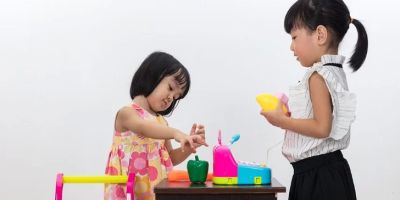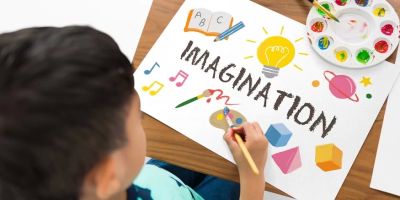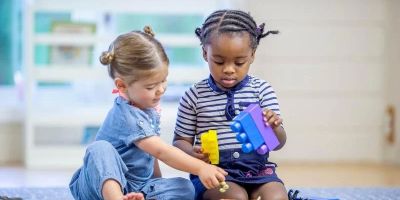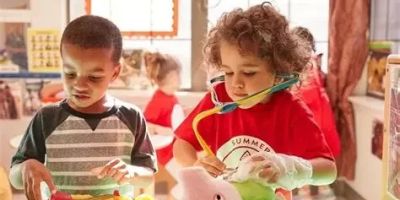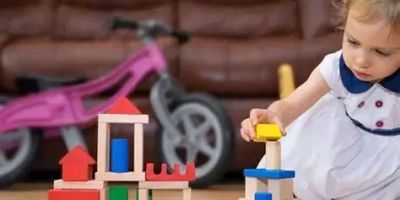- 1-How-Toys-Foster-Cognitive-Development-in-Children
- 2-Understanding-Cognitive-Development-Stages
- 3-The-Role-of-Different-Toy-Types-in-Learning
- 4-Case-Study-Real-Life-Examples-of-Toy-Impact
- 5-Practical-Advice-for-Parents-Choosing-Toys
- 6-How-Knight-Toys-Can-Help-with-Optimal-Choices
1. How Toys Foster Cognitive Development in Children
From the moment children start interacting with the world around them, toys become powerful tools that promote cognitive development. Cognitive development refers to how children acquire knowledge, think, and solve problems. Toys stimulate brain growth by encouraging exploration, creativity, and critical thinking. When children engage with thoughtfully designed toys, they don't just play—they learn essential skills that build the foundation for lifelong learning. For example, simple building blocks can spark spatial awareness and problem-solving, while puzzles enhance memory and pattern recognition.
Unlike passive activities, playing with toys activates multiple areas of the brain, integrating sensory input, motor skills, and decision-making. This hands-on learning process is crucial during early childhood, a time when neural connections form rapidly. Research shows that children exposed to educational toys in stimulating environments tend to develop stronger language, attention, and reasoning abilities compared to peers with limited access to such tools.
1.1 Toys as Catalysts for Active Learning
When children manipulate toys, they test hypotheses, learn cause and effect, and build cognitive flexibility. For example, a toddler stacking rings experiments with size order and balance, gradually understanding abstract concepts like “bigger” and “smaller.” This active engagement contrasts sharply with passive screen time, making toys an irreplaceable part of cognitive growth.
1.2 Emotional and Social Benefits Amplify Cognitive Gains
Toys often facilitate social play, which adds emotional learning layers such as cooperation, empathy, and communication. These social interactions indirectly enhance cognitive functions like problem-solving and self-regulation, demonstrating that the right toys nurture the whole child.
2. Understanding Cognitive Development Stages
Cognitive development occurs in progressive stages, each with distinct learning capacities that toys can support differently. Jean Piaget’s theory, a cornerstone in child psychology, divides cognitive growth into sensorimotor, preoperational, concrete operational, and formal operational stages.
2.1 Sensorimotor Stage (0-2 years)
During this phase, infants learn through sensory experiences and motor actions. Toys that stimulate senses—bright colors, varied textures, sounds—are most effective. For instance, rattles and soft blocks encourage tactile and auditory exploration, laying the groundwork for later cognitive complexity.
2.2 Preoperational Stage (2-7 years)
At this stage, symbolic thinking flourishes. Children enjoy imaginative play, language development, and learning through representation. Toys like dolls, action figures, and pretend kitchen sets help children experiment with roles and narrative thinking, enhancing memory and language skills.
2.3 Concrete Operational Stage (7-11 years)
Children begin logical thinking and grasp concrete concepts. Puzzle games, strategy board games, and construction sets challenge reasoning and problem-solving abilities. These toys support abstract thought by requiring planning and cause-effect understanding.
2.4 Formal Operational Stage (12+ years)
Adolescents develop abstract and hypothetical thinking. Complex science kits, coding games, and advanced puzzles stimulate creativity, critical analysis, and reasoning. The right toys can support this intellectual maturity by offering challenges suited to their evolving cognitive skills.
3. The Role of Different Toy Types in Learning
Different types of toys promote various cognitive skills. Recognizing these categories helps parents select toys that target specific developmental needs effectively.
3.1 Manipulative Toys and Building Sets
Blocks, Lego, and other construction toys foster spatial reasoning, fine motor skills, and creativity. Children learn engineering basics, balance, and symmetry by building structures, which supports problem-solving and planning.
3.2 Puzzle and Logic Toys
Jigsaw puzzles, memory games, and sorting toys boost memory, attention to detail, and sequential thinking. These toys develop perseverance and analytical thinking, valuable cognitive skills throughout life.
3.3 Role-Playing and Imaginative Toys
Pretend play toys encourage symbolic thinking, social cognition, and language development. Children role-play scenarios that enhance understanding of social rules and emotional intelligence.
3.4 STEM and Educational Toys
Toys focused on science, technology, engineering, and math engage logical reasoning and curiosity. Interactive kits that teach coding, robotics, or simple chemistry experiments prepare children for academic success in critical 21st-century skills.
4. Case Study: Real-Life Examples of Toy Impact on Cognitive Growth
Consider Emma, a 4-year-old who struggled with attention and communication skills. After her parents introduced educational role-playing toys and puzzles from Knight Toys, Emma’s language skills blossomed, and her ability to focus improved noticeably. By engaging with toys designed to stimulate cognitive and social abilities, Emma built confidence and creativity.
Similarly, a popular viral story features a father using building blocks to teach his 6-year-old son basic engineering concepts. This hands-on, playful approach transformed the child’s curiosity into a passion for STEM, showing the profound impact of the right toys beyond simple amusement.
5. Practical Advice for Parents Choosing Toys That Boost Cognitive Development
Parents often face the challenge of selecting toys that truly benefit their child’s cognitive growth. Here are some essential tips:
5.1 Match Toys to Developmental Stage
Understanding the child’s cognitive stage is vital. Avoid toys that are too advanced or too simplistic, as they can lead to frustration or boredom.
5.2 Prioritize Open-Ended Toys
Toys that can be used in multiple ways encourage creativity and problem-solving. Building blocks and art supplies often outperform single-function toys.
5.3 Consider Social Interaction Potential
Choose toys that encourage cooperative play to enhance social-cognitive skills, such as board games or pretend play sets.
5.4 Evaluate Quality and Safety
Durable, non-toxic materials ensure that children can explore freely without risk, allowing uninterrupted cognitive engagement.
6. How Knight Toys Can Help with Optimal Choices for Cognitive Development
Choosing the right toy can be overwhelming, but Knight Toys offers expertly curated selections tailored to promote cognitive development at every stage. Their products combine educational value with fun, ensuring children remain engaged while developing essential skills.
Whether you're searching for sensory-rich toys for infants, imaginative playsets for toddlers, or STEM kits for older children, Knight Toys provides trustworthy recommendations and quality products that support your child’s brain growth. With thoughtful guidance and high-quality toys, parents can confidently foster their child's cognitive potential.

